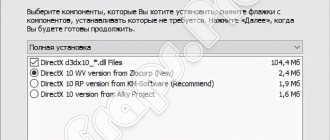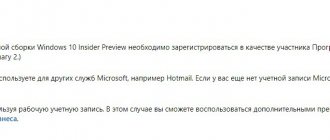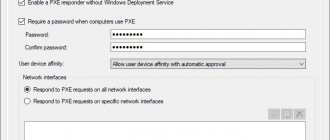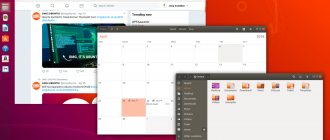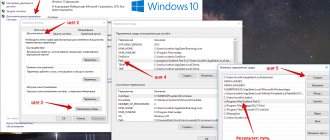- Updating ubuntu packages
You can download all available versions of Ubuntu operating systems on the official website in the releases section (Ubuntu Releases). At the top there is a list of all systems in the family (Kubuntu, Xubuntu...). By clicking on the link in the list, you can also download these operating systems via torrent (and more).
Below I have prepared a list of links to off. site for downloading torrent files of iso images of the Ubuntu system (direct links):
What are Linux and Ubuntu?
Quote from Wikipedia:
| Ubuntu - from Zulu ubuntu - humanity. Operating system based on Debian GNU/Linux. The main developer and sponsor is Canonical. Currently, the project is actively developing and supported by a free community. |
Linux is a generalized name for UNIX operating systems, which include a kernel of the same name and have their own library and programs for the system itself, developed within the GNU project. Linux OS is often confused with programs that complement the OS. Such application level programs make the OS an integral and multifunctional system. Linux does not have a framework-approved package, like other operating systems. As an alternative to this, Linux provides a huge number of distributions or build versions, with the function of connecting a GNU program to the Linux kernel and other programs.
Linux is completely different from the commercial developments of UNIX, and even more so from the OS from Microsoft and Apple, since it does not have a centralized place where developments and organizations owning the system were carried out. Geographically it is not possible to indicate the location of the support center. The entire system consists of multi-level programs created by completely different people and companies with the goal of improving the system for personal use. Many developers are hackers from different parts of the world, communicating only virtually. Every person can participate in the development, and more successful projects will subsequently be used by hundreds of thousands of users.
By talking directly with programmers, any user can correct existing errors and implement something of their own. The effectiveness of Linux is due to the flexibility and dynamism of programs, the ability to independently test and distribute. Attracting developers from all over the world who understand the problems from different angles, the code protected by the GPL license has caused huge success among users.
Open source reduces the price of commercial software development for Linux and makes it possible to significantly reduce the cost of the product. Because of this, the operating system has become a favorite platform for the work of such companies as SyBase, Informix, SAP R3, Oracle, DB2, Domino. IBM organized the transfer of Linux to its platforms.
A Brief History of Ubuntu Development
The Ubuntu operating system belongs to the Linux family and is focused on convenience and ease of use.
Initially, Ubuntu's working environment was Gnome 2, and this continued until the release of version 11.04, which was released on April 28, 2011. Canonical decided to develop its own working environment, which was called Unity. The user community greeted the innovation very ambiguously, since in Unity the appearance began to focus on tablets and other touch screens and was inconvenient for use on a regular screen. By the way, it is still impossible to comfortably use any Linux distribution on a tablet, since only one touch is supported, which greatly limits convenience.
But the system developers did not give up on their goals and developed their own working environment up to system version 18.04, which was released on April 26, 2020. In it, the system appeared with the Gnome 3 working environment, which was modified to match the appearance of Unity, which is familiar to many.
Wubi - Alternative Ubuntu Installer
This installer allows you to install Ubuntu directly from the Windows operating system. Why install Linux at all? No viruses, free distributions, interesting proprietary software, no “screen of death” - these are just a few of the advantages of this operating system. Why do this with Wubi? And in order not to affect the disk file system and MBR, the operating system will be installed in a container, which can easily be deleted through the standard “Explorer” or “FAR FM”. Its size, like the “admin” password, for example, is set during the installation process - on the main and only screen of the program (see the picture below)
Immediately after launching the Wubi utility, a folder with the Ubuntu Linux image is created, and one additional line is added to the operating system loader. Line from Ubuntu. You can uninstall Ubuntu installed using wubi.exe as a regular program: “Control Panel” -> “Add and Remove Programs..”. This is the main distinguishing feature of the utility. I will also note that Wubi usually comes with a Linux image (within the image), although in recent versions it has learned to download Ubuntu on its own. So you can download one installer file, and Wubi will do the rest.
This may come in handy:
Ubuntu System Requirements
The system requirements for installing Ubuntu on a computer or laptop are very modest:
- RAM – 1 GB
- 9 GB of free hard disk space
- Screen with a resolution of at least 1024x768
These are the minimum requirements, but it is advisable that you have at least 2 GB of RAM and 20 GB of hard drive space.
Previously, the system was available for download in the form of 32-bit and 64-bit images. The first one was downloaded for computers with less than 4 GB of RAM, but the latest versions come only as a 64-bit image.
In addition, there is a division into desktop and server versions. The first is intended for installation on computers and laptops. The second is intended for installation on the server. MinimalCD images are intended for experienced users who install the necessary components and software themselves.
As for Ubuntu Unity or Gnome3 desktop environments . Kubuntu versions come with the KDE . For weaker computers, there is Xubuntu with the XFCE and Lubuntu the LXDE and LXQT desktop environments . For conservative users who do not want to switch from the familiar Gnome 2 there is a version of Ubuntu MATE .
Features of Ubuntu Server
Let's now move on to the features of Ubuntu Server. One of the features is a minimalistic console installer of the system on the server, which allows you to quickly and conveniently install the required functionality. You can immediately select the final server functionality in the form of a ready-made role from the standard installer.
This way you can very quickly get, for example, a ready-made host for deploying docker containers. The entire installation is via a standard installer. No separate repositories or installers. It's comfortable.
After installing the system, you will not have the root account configured by default, as is the case, for example, in RHEL or Centos. You can connect to the server via ssh only under a regular account and then use sudo to gain root rights. Not to say that this is some kind of unique feature. The same will happen in Debian, but for those who are not familiar with these distributions, it may be a surprise, as it was for me when, after Freebsd, I became acquainted with distributions based on debian and deb packages.
Another feature of Ubuntu Server is that it will periodically show you various news in the console when you log in via ssh, and over time, maybe advertisements
